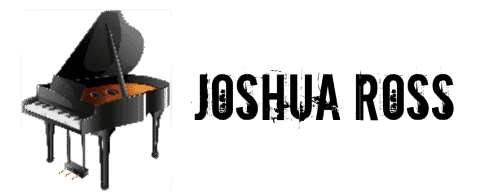As an Amazon Associate I earn from qualifying purchases.
Yamaha pianos are indeed known for retaining their value over time. You’ll often find that models like the Yamaha CFX concert grand and the U series upright pianos sustain their worth due to their esteemed craftsmanship and sound quality.
As a pianist and teacher, I’ve seen firsthand how a well-maintained Yamaha piano can be a lasting investment, even as my students advance in their skills, the instruments continue to offer reliable performance.
Want to Learn Piano?Click Here

The secret to a Yamaha piano’s ability to hold its value lies in the brand’s consistent manufacturing quality and the enduring demand for these instruments.
While the initial purchase of a new Yamaha piano might feel like a significant financial outlay, it’s comforting to know that the market for pre-owned Yamahas is quite robust. My experience in helping students and families select pianos has shown that Yamaha’s are a favored choice not only for their musical excellence but also for their resale value.
This makes them an attractive option for both beginner and advanced players, ensuring that when the time comes to upgrade or sell, the piano will still be a valuable asset.
Just remember that the condition of the piano plays a critical role in its value retention. Regular tuning, careful playing, and proper environmental conditions can greatly enhance the lifespan and therefore the value of a Yamaha piano.
Evaluating Yamaha Pianos’ Value Over Time

When considering the purchase of a Yamaha piano, understanding how its value holds up over time is crucial. Whether eyeing an elegant grand or a compact digital model, a few factors play a key role in determining its worth in the years to come.
Factors Influencing Yamaha Piano Value
Several elements can affect the value retention of your Yamaha piano. Age and condition are pivotal; a well-maintained piano can often see minimal depreciation. Regular tuning and cleaning are part of essential upkeep that preserves its integrity.
Brand, in this case Yamaha, is synonymous with quality, which aids in maintaining value. In contrast, digital pianos often depreciate faster than acoustic pianos due to technological advancements.
- Maintenance: Regular maintenance including tuning and cleaning
- Brand: Yamaha’s reputation for quality
- Digital vs Acoustic: Different rates of value retention
Comparison with Other Brands
When playing the field, so to speak, Yamaha pianos frequently have the edge in terms of resale value compared to lesser-known brands. For instance, alongside other reputable names like Steinway & Sons and Kawai, Yamaha stands out for crafting instruments that can withstand the test of time, even amid market fluctuations and inflation.
- Steinway & Sons: Known for excellent value retention
- Kawai: Another brand competing closely with Yamaha
Yamaha Pianos in the Used Market
In the used market, demand for Yamaha pianos often remains high due to their reliability and resale value. Pianos that are younger or have been meticulously cared for fetch a higher price.
Whether it’s a pre-loved grand piano or a second-hand digital piano, shoppers are drawn to the enduring allure of a Yamaha. The purchase of a used Yamaha piano can be a sound investment, reflecting the brand’s capability to hold value over time.
- High demand for used Yamaha pianos
- Importance of condition
Here’s a table sharing how much you can expect to spend for Yamaha pianos on the used market:
| Piano Model | Price Range |
|---|---|
| Used 1973 Yamaha G2 Grand | $11,500 (from $13,500) |
| Yamaha Cherry Console | $3,495 (from $7,895) |
| Certified Pre-Owned Uprights | Starting at $5,100 |
| Yamaha U3 Professional Upright | $5,000 to $8,000 |
| Yamaha U1 Studio Upright | $4,950 to $6,950 |
Practical Tips for Yamaha Piano Owners
Owning a Yamaha piano is not only a delight for any musician but also a notable investment. Maintaining its condition and understanding the market for when you’re ready to sell can significantly impact its value over time.
Maintenance and Care
Your Yamaha piano is a fine instrument that requires regular maintenance to preserve its sound quality and value. Voicing and tuning should be done by a professional periodically to ensure your instrument keeps its rich tone and pitch accuracy. Here are some specifics to follow:
- Keep your piano away from direct sunlight, as it can fade the finish and affect the soundboard.
- Place your piano in a climate-controlled environment to prevent damage from temperature and humidity fluctuations.
- Protect your instrument from dust and pets, as these can affect the piano’s mechanism and finish.
- Yamaha pianos, such as the Yamaha U3, are known for their durability, but like all pianos, they can depreciatewith neglect.
Selling Your Yamaha Piano
When it comes to selling your Yamaha piano, understanding the market for used pianos is crucial. Brand new Yamaha pianos can be quite an investment, but they do depreciate once they leave the showroom. However, well-kept Yamaha pianos hold their value relatively well. To ensure you get the best offer:
- Provide documentation for any regular maintenance and repairs, as proof of upkeep can justify a higher asking price.
- Offering a valid warranty, if available, can also make a difference in the resale value.
- Consider selling in a temperature controlled storage to show that the piano has been kept in optimal conditions.
Hello & thanks for stopping by! I’m a professional concert pianist and piano instructor. In the United States, I’ve given successful performances in several places including New York, Florida, Connecticut, & New Jersey, I have also performed internationally in Italy and made my Carnegie Hall debut in 2014. I enjoy blogging about the piano, the art of performance, general music, current events and the latest in music production.
